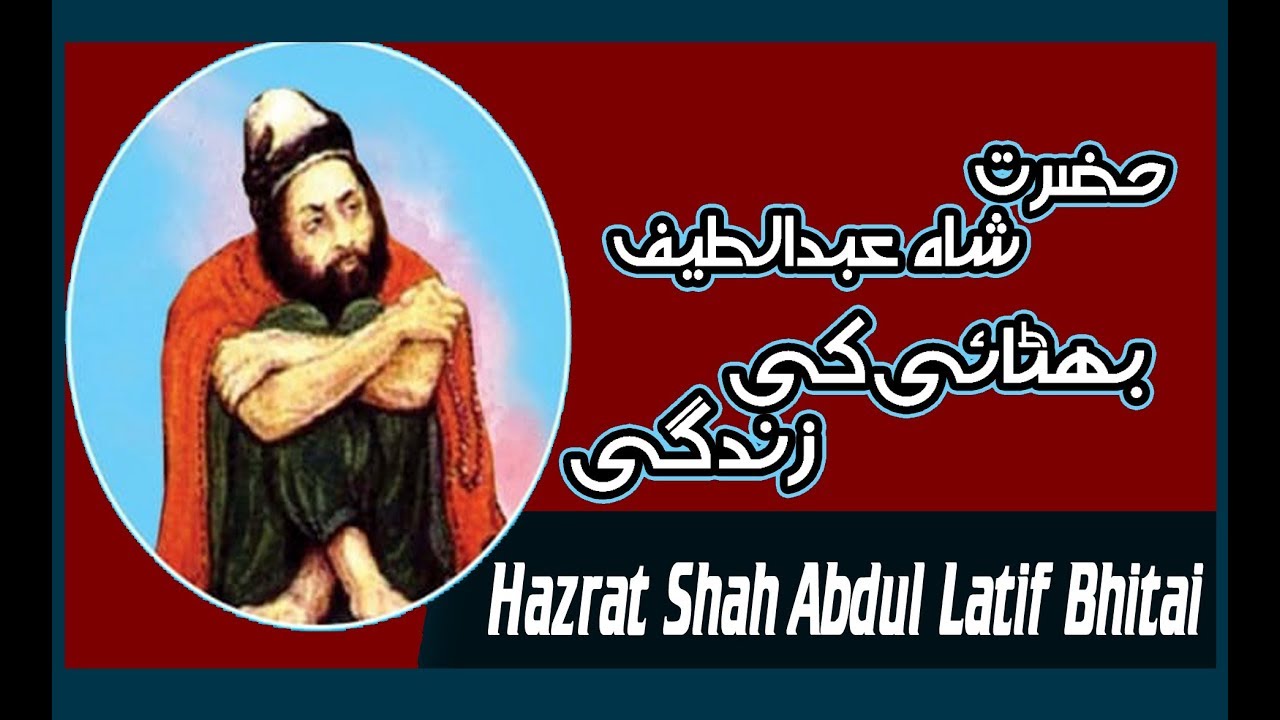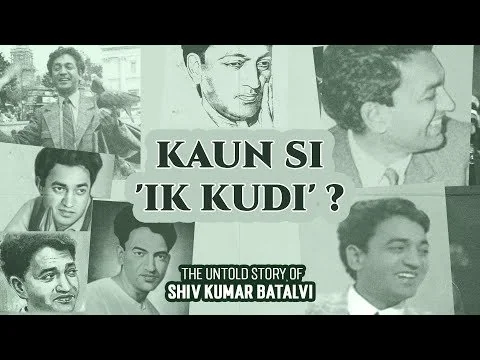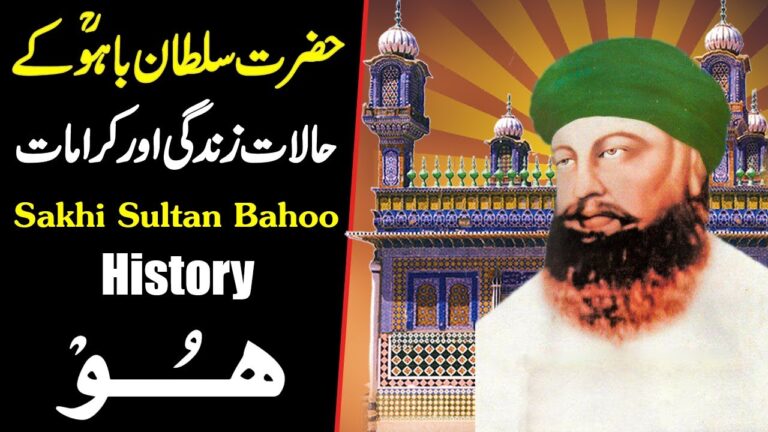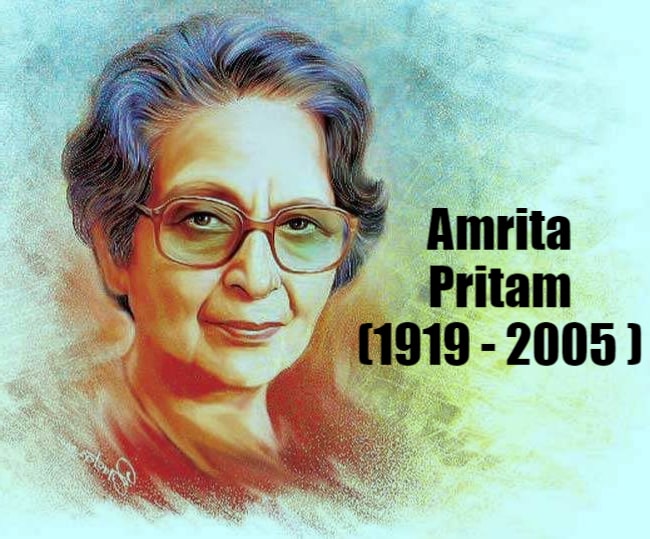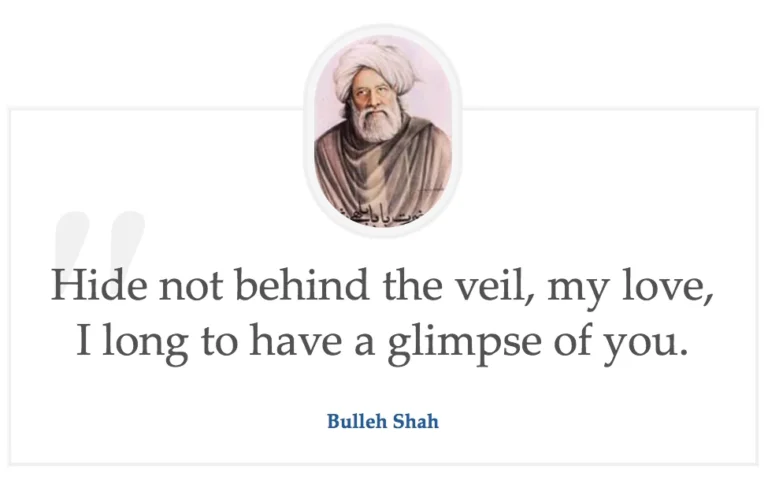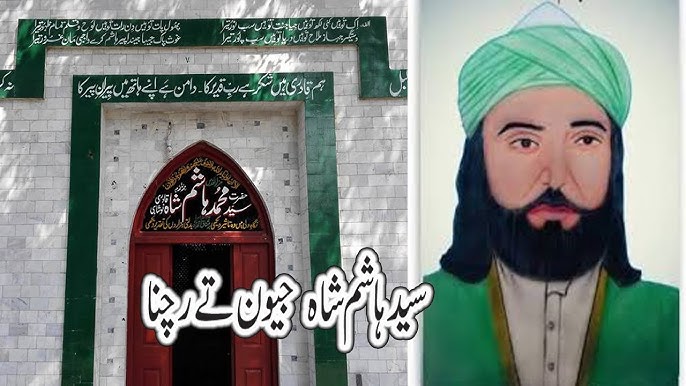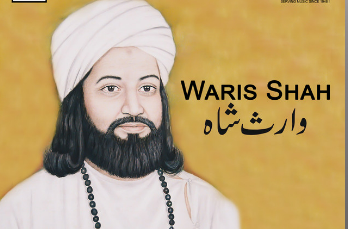Shah Abdul Latif Bhittai – The Mystic Poet of Sindh
Shah Abdul Latif Bhittai: The Mystic Poet of Sindh
Shah Abdul Latif Bhittai (1689–1752) stands as one of the greatest Sufi poets in the history of South Asia, particularly in the Sindhi language. His profound poetry, deeply rooted in mysticism, humanism, and love for the Divine, continues to influence scholars, poets, and spiritual seekers. Shah Abdul Latif’s literary legacy has transcended the borders of Sindh, Pakistan, and has touched hearts far beyond his homeland. While he is primarily known as a Sindhi poet, his works resonate across various languages and traditions, including Punjabi, due to the shared Sufi ethos that permeates the region.
In this research-based article, we delve into the life, works, and philosophy of Shah Abdul Latif Bhittai, exploring his influence on Sindhi and Punjabi Sufi literature, his spiritual worldview, and his contribution to the literary and cultural heritage of South Asia.
Early Life and Background
Shah Abdul Latif Bhittai was born in 1689 in Hala Haveli, Sindh, which is part of present-day Pakistan. He belonged to a well-respected family of Sayyids, descendants of the Prophet Muhammad, who were known for their piety and knowledge. Latif’s father, Shah Habib, was a man of deep learning, and his household was steeped in religious and spiritual traditions. Latif’s early education was therefore focused on the Quran, Hadith, Islamic jurisprudence, and classical Persian literature.
From a young age, Shah Latif demonstrated an intense interest in spirituality and mysticism. He was deeply drawn to nature and the contemplation of the divine mysteries. Instead of following a conventional path in life, Latif chose to travel extensively across the Sindh region, immersing himself in various spiritual and cultural traditions. His travels took him to different parts of Sindh, Punjab, and beyond, where he interacted with scholars, saints, and ordinary people, absorbing a wealth of knowledge that would later shape his poetry.
Shah Abdul Latif and Sufism
Sufism, the mystical dimension of Islam, focuses on the inner, personal relationship between the individual and God. Shah Abdul Latif Bhittai’s poetry is rooted in this Sufi tradition, and his verses reflect the core tenets of Sufi thought: love for God, the rejection of materialism, spiritual self-purification, and the quest for truth. Like other great Sufi poets such as Bulleh Shah and Sultan Bahu, Shah Latif emphasized that the journey to God lies within one’s own soul, rather than through external rituals and religious formalism.
A central figure in his spiritual life was Shah Abdul Karim Bulri, his great-grandfather, who was a renowned Sufi saint. Shah Abdul Latif drew much inspiration from his teachings and absorbed his mystical outlook. Latif’s life was characterized by deep contemplation, meditation, and an intense longing for union with the Divine. He spent much of his time in seclusion on the Bhit (a small hill), which later became his spiritual retreat and earned him the title “Bhittai” (man of the Bhit).
Shah Jo Risalo: The Magnum Opus
Shah Abdul Latif Bhittai’s most celebrated work is the Shah Jo Risalo, a compilation of his poetic verses. Though the exact date of compilation is not clear, it is believed that his disciples collected and compiled his poetry after his death. The Risalo consists of surs (chapters), each of which is dedicated to a particular raga (musical mode) and narrates different themes, stories, and allegories.
The poetry in the Risalo is not just a literary masterpiece but also a spiritual guide. Shah Latif employed various traditional folktales and allegories to convey deeper mystical truths. His use of local Sindhi folklore allowed him to communicate with the masses in a language and style that they could understand, while at the same time weaving in profound spiritual lessons.
Some of the key characters in his poetry include:
- Sasui-Punhun: This story from Sindhi folklore symbolizes the soul’s longing for union with the Divine. Sasui, the protagonist, represents the human soul, while Punhun, her beloved, represents God. The story portrays Sasui’s arduous journey to reunite with Punhun, embodying the soul’s quest to overcome worldly obstacles and achieve divine union.
- Marvi: Marvi, a village girl, symbolizes the themes of purity, self-respect, and love for one’s homeland. Her story is often interpreted as a metaphor for the human soul’s attachment to its spiritual homeland—God.
- Sorath-Rai Diyach: Another popular folktale employed by Shah Latif, Sorath’s unwavering loyalty and love for Rai Diyach is used to illustrate themes of sacrifice, devotion, and the ultimate quest for divine love.
- Momal-Rano: This tragic love story of Momal and Rano is symbolic of the trials and tribulations faced on the spiritual path, where miscommunication and human frailties serve as obstacles to achieving true union with the Divine.
Themes in Shah Latif’s Poetry
Shah Abdul Latif Bhittai’s poetry is multifaceted, touching on a wide range of themes that reflect both his spiritual concerns and his deep understanding of human nature. Some of the most prominent themes in his poetry include:
1. Divine Love
Central to Shah Latif’s poetry is the concept of divine love, which he expresses through various metaphors and allegories. His verses speak of the lover’s intense longing for union with the beloved, which represents the soul’s quest for God. Like other Sufi poets, Shah Latif views the world as a transient place, with the only lasting reality being the Divine.
2. Humanism and Social Justice
Shah Latif was deeply concerned with the plight of the poor, the marginalized, and the oppressed. His poetry reflects a strong sense of social justice, as he often speaks against the exploitation of the weak and the greed of the powerful. He believed in the equality of all human beings, regardless of their social status, caste, or creed.
3. The Spiritual Journey
In much of his poetry, Shah Latif uses the metaphor of a journey to symbolize the soul’s path towards spiritual enlightenment. The journey is often fraught with difficulties and challenges, but Latif emphasizes that it is through these trials that the soul is purified and ultimately reunited with the Divine.
4. Nature and the Divine
Shah Latif had a deep love for nature, which is reflected in his poetry. He often uses natural imagery—rivers, mountains, deserts, and oceans—to convey spiritual truths. For Latif, the beauty of the natural world is a reflection of the Divine, and contemplating nature is a way to draw closer to God.
Shah Abdul Latif’s Influence on Sindhi and Punjabi Sufi Poetry
Although Shah Abdul Latif Bhittai wrote primarily in Sindhi, his influence extends beyond the borders of Sindh. His poetry shares much in common with the Punjabi Sufi tradition, especially in terms of themes and philosophical outlook. Like Punjabi Sufi poets such as Bulleh Shah, Shah Hussain, and Waris Shah, Shah Latif’s poetry emphasizes the importance of divine love, the rejection of materialism, and the quest for self-realization.
In particular, Shah Latif’s use of folk tales and allegories resonates with Punjabi Sufi poets, who also employed popular stories and characters to convey spiritual lessons. His poetry, like that of his Punjabi contemporaries, speaks to the universal human condition, transcending the boundaries of language and culture.
The Bhit and the Shrine of Shah Latif
Shah Abdul Latif spent the latter part of his life at Bhit Shah, a small hill near Hala. It was here that he composed much of his poetry and meditated on the Divine. After his death in 1752, his disciples built a shrine in his honor at Bhit Shah, which remains a major pilgrimage site today. Each year, thousands of devotees gather at his shrine to celebrate his urs (death anniversary) and to recite his poetry in traditional musical forms.
The urs of Shah Latif is not just a religious ceremony but also a cultural event, where musicians, poets, and scholars come together to celebrate his life and work. His poetry continues to be sung in waai (a traditional Sindhi musical form) by folk singers, keeping his legacy alive for future generations.
Shah Abdul Latif’s Legacy
Shah Abdul Latif Bhittai’s legacy is one of spiritual enlightenment, social justice, and love for humanity. His poetry transcends the boundaries of time and space, offering timeless wisdom to those on the spiritual path. In Sindh, he is revered not only as a poet but as a spiritual guide whose teachings continue to inspire people from all walks of life.
Beyond Sindh, Shah Latif’s work has found resonance in the broader South Asian Sufi tradition, including in Punjab, where his message of love, humility, and devotion mirrors that of other great Sufi poets. His influence can also be seen in modern literature, music, and art, where his universal themes of love, self-realization, and the quest for truth continue to inspire creative expression.
Conclusion: Shah Abdul Latif Bhittai—A Timeless Mystic
Shah Abdul Latif Bhittai stands as a towering figure in the world of Sufi poetry, his verses echoing the timeless truths of spiritual love and human unity. His work reflects the rich cultural and spiritual heritage of Sindh, but his message of divine love and social justice speaks to people across the world. In a time of division and strife, Shah Abdul Latif’s poetry reminds us of the essential oneness of all creation and the need to cultivate love, compassion, and humility in our lives.
His poetry, steeped in Sufi mysticism and local folklore, continues to be a source of spiritual nourishment and cultural pride, bridging the gap between the temporal and the eternal. Through his works, Shah Abdul Latif Bhittai has secured his place as one of the greatest poets of South Asia, leaving behind a legacy that will inspire generations to come.
